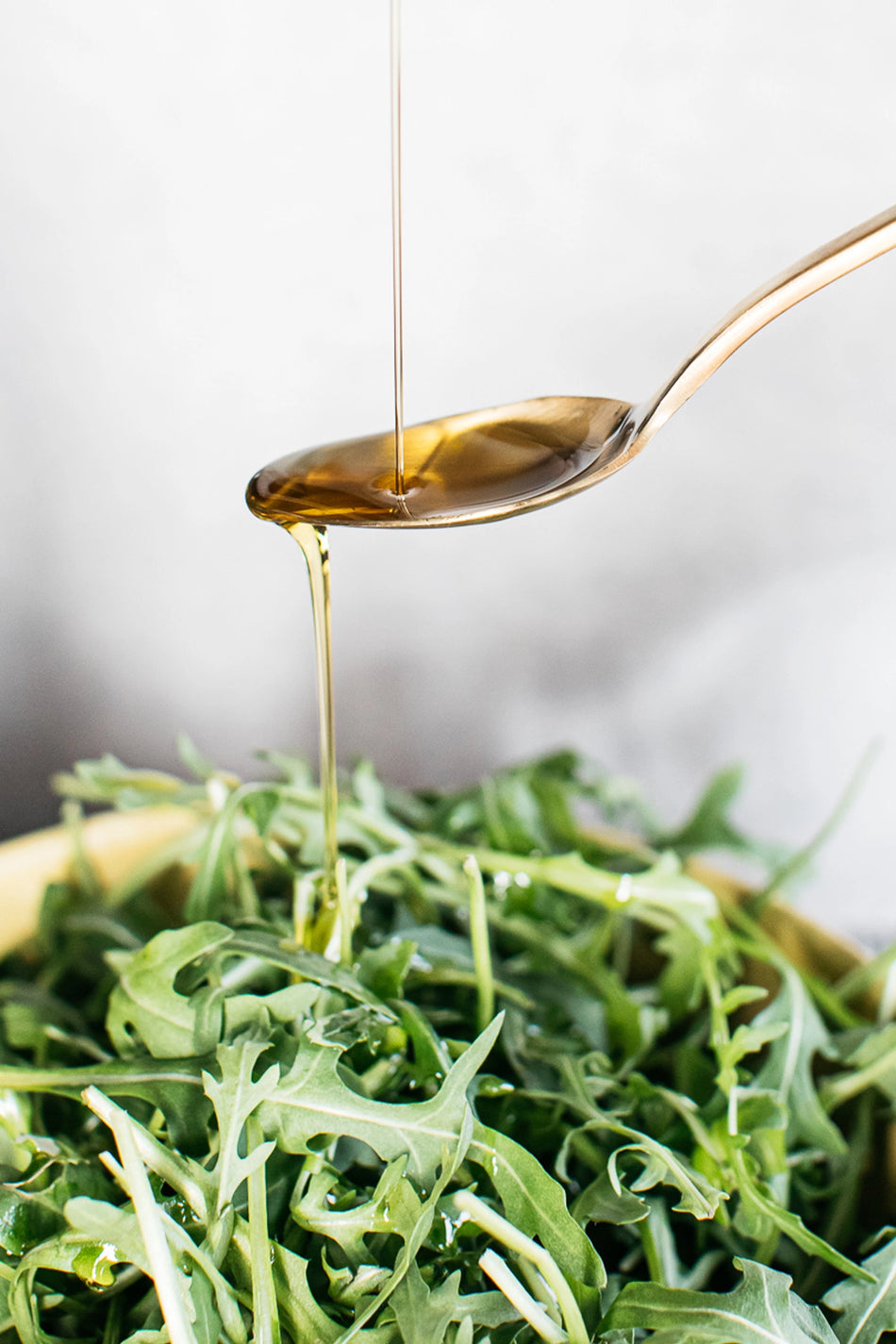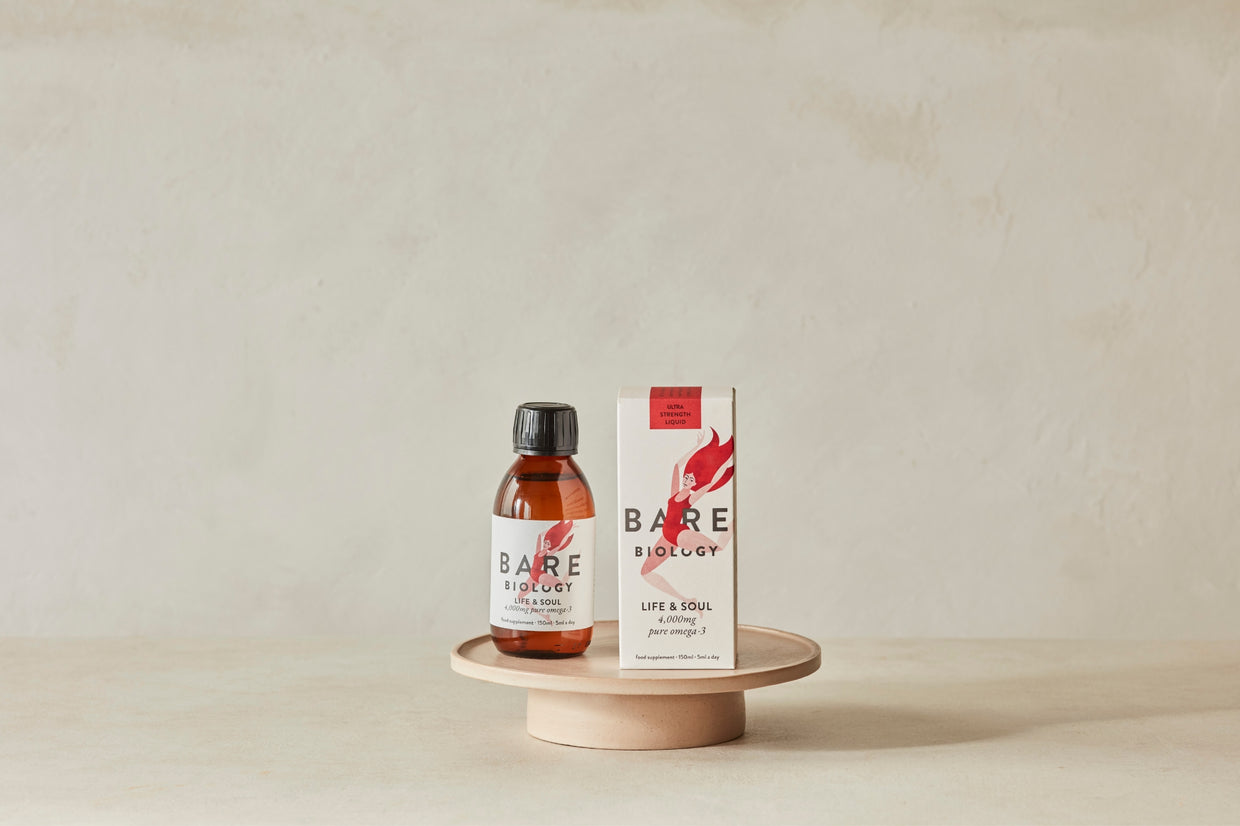Can taking omega-3 make you gain weight?
CONTENTS
If you’re watching your diet, you may be logging everything you consume, right down to the splash of skimmed milk you have in your tea. But is there a little nagging voice inside your head that wonders if you should be counting the calories in your supplements too?
After all, those chewy vitamin tablets do taste a little sweet. Could those innocent-looking capsules turn out to be calorific? And isn’t that just a teaspoon of pure oil you’re downing every day?
Well, you might have a point. Non-chewable vitamin tablets may contain starch or lactose, there may be alcohol or sugar in certain solutions and gelatine in capsules, all of which do contain a small number of calories. But just to put things into perspective, even a relatively indulgent sugar-coated Ibuprofen contains just 0.5 calories - not enough to make a dent in even the strictest of daily allowances.
But then there’s omega-3 fish oil. Unlike vitamins, fish oil is just fat and, even though it’s good for you, it will have a higher calorie count to show for it. But just how many calories are we talking about? Can taking omega-3 cause weight gain or could it help you to lose it? And are certain brands better (or worse) for your waistline than others?
Read on and we’ll explain the truth behind the health benefits of omega-3 and its effect on your weight.

Does omega-3 cause weight gain?
Just as all calories aren’t equal, all omega-3 fish oil supplements aren’t equal either. Lower quality supplements will not contain as many active ingredients as pure, fresh fish oil, stamped with a best before date. This means you have to consume a lot more of them to raise the levels of omega-3 in your body.
Here’s an example. Say you wanted to take 3,000mg of omega-3 per day because you’ve heard it’s the amount approved as a health claim by the European Food Safety Agency for normal blood pressure.
If you bought a well-known, average priced 1,000mg capsule, where two capsules together contain 214mg of EPA and DHA combined, you’d need to take 28 of them to get near your target.
Now, that’s 28 times 1,000mg capsules, which only contain 214mg of EPA and DHA per two capsules. The remaining 22,000 mg is fat with no nutritional value. Assuming you could actually stomach them, you’d be consuming an extra 220 calories per day.
Contrast that with a concentrated fish oil such as Life & Soul Omega 3 fish oil here a single 5ml serving contains 3,000mg EPA and DHA at just 45 calories per spoonful. In summary, high doses of EPA and DHA have a more beneficial effect without the large calorie intake.
How omega-3 fish oil can help you lose weight
One of the most common misconceptions in nutrition is the idea that fat will make you fat.
After all, gram for gram, fats are far more energy-dense than other macronutrients. But not all fats are created equal. In fact, healthy polyunsaturated fats like fish oil can actually boost your weight loss efforts. But how?
The body uses an incredibly complex (and slow) process to metabolise the fat we eat. Fats are mainly digested in the small intestine where their presence stimulates the release of hormones that are used to emulsify them. This turns them into fatty acids and glycerol. The fatty acids can be absorbed and used by the body, while the glycerol is either burned for energy or stored as fat.
So where do the fatty acids go and how can the healthy ones like omega-3 help you lose weight?
Well, the simple explanation is that healthy fats like omega-3 can be used by your trillions of cells to build new cell walls. Cell walls made of healthy, high-quality fats such as omega-3 can metabolise insulin better, helping you become more sensitive to its effects.
Poor insulin sensitivity is bad news as it makes it difficult, if not impossible, to lose body fat. Having better insulin sensitivity helps to regulate your blood sugar levels, meaning you store less fat and burn more of it.
Another way omega-3 fatty acids can help aid fat loss is by taking them with your meals. This helps lower the glycemic load of the meal you’re eating, so the insulin spike that normally comes with carbohydrate consumption won't be as high.
How many calories are in omega-3 capsules?
Omega-3 fish oil is not calorie-free. All fat contains around 9 calories per gram and fish oil isn’t any different. A single teaspoon of omega-3 fish oil contains around 45 calories - about the same as two large marshmallows.
But that’s where the similarities between omega-3 and a sweet treat like marshmallows end. Unlike the calories in sugar, which are processed quickly and then used for energy (or stored as fat), the omega-3 in fish oil is metabolised completely differently.
So differently, in fact, that eating healthy fats like omega-3 could help you burn more calories than eating the same amount of carbohydrate. This essentially means that taking omega-3 could help to support weight loss goals.




Toxic omega-3 can cause weight gain
But there’s another, more insidious way that poor quality omega-3 fish oils could make you gain weight. While many fish oil supplements claim to be mercury-free, farmed fish are often heavily contaminated with other, more persistent chemicals, such as PCBs (polychlorinated biphenyls) and POPs (persistent organic pollutants).
Not only do the names sound alarming, but these chemicals are also known to be endocrine-disrupting, meaning they interfere with hormones and their actions in the body. One of the actions they’re known to affect is the body’s tendency to gain weight. These endocrine-disrupting chemicals are also known as obesogens, because not only do they create more fat cells, they also enlarge them and make them better at storing fat.
The only way you can know for sure that your fish oil is free from weight causing contaminants such as PCB is if the company that makes them has each batch independently tested for purity.
All fish oil manufacturers are supposed to have a ‘certificate of analysis’ which is a detailed report of the test results they must carry out on every batch of their product. But if they’re not proud of what it contains they may not share their certificate of analysis with you.
Bare Biology is the only company we know of that publishes full certificates of analysis for every single batch. We have a five-star purity rating from International Fish Oil Standards and we’re so proud of our products that we publish the full results on our website too.
It’s a great way for us to prove that all our Bare Biology fish oil supplements are free from any nasties that could affect their health benefits and have the potential to make you gain weight.
Rancid omega-3 could cause weight gain
If you’ve taken a fish oil supplement that tastes fishy or repeats on you, it’s a sure sign it’s oxidised and turned rancid. But not only does rancid fish oil taste unpleasant, but it can also be harmful and lead to weight gain.As a liquid fat, omega-3 is highly vulnerable to oxidative damage. When fat particles oxidise, they break down into smaller compounds called free radicals. While free radicals are not inherently bad, having too many for your body to handle can lead to what’s known as oxidative stress. This essentially means that free radicals have overwhelmed your cells leading to inflammation, premature ageing and yes, you’ve guessed it, weight gain.At Bare Biology, we take great lengths to make sure our fish oil is fresh. We handle it extremely carefully and use nitrogen (a common, harmless practice) to reduce its exposure to oxygen as much as possible. Doing so means we keep our levels of oxidation incredibly low and we get each batch tested by IFOS so we can prove it.

Can omega-3 supplements cause weight gain?
At just 45 calories per teaspoon, omega-3 fish oil isn’t likely to make a great difference to your weight provided you’re not taking it as a substitute for eating well and exercising regularly. But with that comes a caveat. You need to make sure you’re taking a high-quality product that’s fresh, free from toxins and high in active ingredients.
Taking a supplement that has every batch analysed and publishes its result, such as Bare Biology, means you know that you’re taking high amounts of omega-3 in just a single serving. You’ll know it’s not rancid and doesn’t contain harmful levels of chemicals that could affect the hormones in your body.
Plus, because each spoonful contains high amounts of omega-3, you won’t be eating lots of unnecessary calories in fat with no active ingredients.







